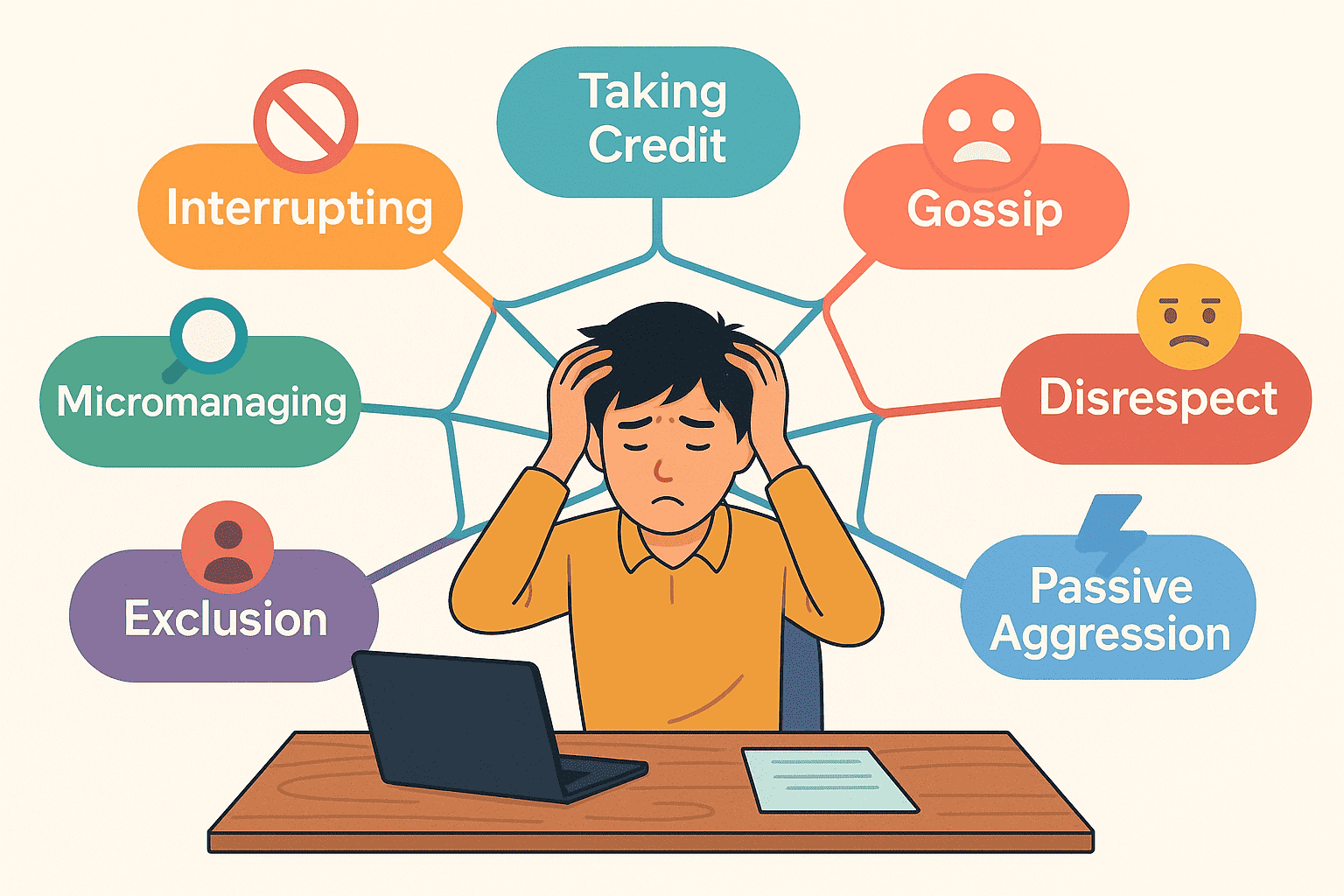How to Deal with Difficult Coworkers: Strategies for a Healthier Workplace

Most workplaces bring together people with different personalities, values, and communication styles. While diversity is a strength, it can also create friction. At some point in your career, you may encounter colleagues who are challenging to work with—whether they are overly critical, uncooperative, or disruptive. Learning how to deal with difficult coworkers is not only essential for productivity, but also for protecting your mental health and maintaining a positive professional identity.
As a therapist, I often hear clients describe the toll of workplace tension. The stress of navigating hostile or unhelpful behavior can spill into personal life, leaving you exhausted, anxious, or doubting your abilities. The good news is that there are practical strategies to manage these relationships without sacrificing your well-being.
Understanding Difficult Behavior
Before diving into solutions, it helps to identify what makes a coworker “difficult.” Some people may be passive-aggressive, withholding information or making sarcastic remarks. Others may be openly confrontational, interrupting or criticizing in meetings. There are also those who resist teamwork, ignore boundaries, or gossip excessively.
Recognizing the specific behavior is important. It shifts the focus from labeling someone as “bad” to understanding the patterns that cause stress. This mindset can help you respond with clarity instead of reacting emotionally.
Stay Grounded in Professionalism
When dealing with challenging colleagues, your first line of defense is your own professionalism. Remaining calm and composed communicates that you are in control of yourself, even if the other person is not.
This does not mean suppressing your feelings—it means choosing how and when to express them. For instance, instead of snapping back at a rude comment in a meeting, you might calmly address it later in private: “I felt uncomfortable when you interrupted me earlier. I’d like us to respect each other’s input.” Clear, assertive communication prevents escalation and reinforces healthy boundaries.
Set Boundaries Clearly
Boundaries are crucial in learning how to deal with difficult coworkers. If someone repeatedly takes credit for your work, speaks disrespectfully, or pressures you into staying late, it is reasonable to push back. Boundaries are not walls; they are guidelines that protect your time, energy, and respect.
For example, you might say, “I’m not available to discuss this after hours, but I’ll gladly address it tomorrow morning.” Or, “I appreciate feedback, but I’d like it to be shared constructively rather than in front of the entire team.” These statements are polite yet firm, making it clear what behavior is acceptable.

Don’t Personalize Their Behavior
One of the most draining aspects of conflict is internalizing someone else’s negativity. Remember: difficult coworkers often act out because of their own stress, insecurity, or lack of communication skills—not because of your shortcomings.
It can help to reframe situations. Instead of thinking, “She doesn’t respect me,” you might remind yourself, “She struggles with listening, and that’s about her, not me.” This perspective shift reduces the emotional weight you carry and allows you to focus on solutions instead of self-blame.
Choose Your Battles Wisely
Not every frustrating behavior requires a response. If a coworker makes an occasional snide remark, ignoring it may be the best option. Constantly engaging with minor annoyances can drain your energy. Save your efforts for situations that truly affect your work or well-being.
This selective approach also communicates that you are focused on what matters. Over time, colleagues may adjust their behavior when they see that negativity doesn’t get the reaction they expect.
Use Support Systems at Work
If the situation escalates or feels unmanageable, seek support from supervisors, HR, or trusted colleagues. Documenting specific incidents—dates, times, and what was said or done—can be helpful if formal intervention is needed.
Many organizations now prioritize mental health and workplace culture. Speaking up is not about creating conflict; it’s about ensuring a respectful environment for everyone.
Practice Self-Care Outside of Work
Managing difficult relationships can be draining. That’s why it’s essential to replenish your emotional energy outside of work. Exercise, hobbies, journaling, or time with supportive friends and family can help you process stress and regain balance.
Some clients find mindfulness techniques especially helpful. A few deep breaths before entering the office or a short meditation after a tense meeting can make a big difference. Protecting your well-being allows you to show up at work with greater resilience.

When the Environment is Truly Toxic
Sometimes, despite your best efforts, the workplace itself may be unhealthy. If harassment, bullying, or chronic disrespect continues unchecked, the healthiest option may be to consider a transfer or even a new job. Your well-being and dignity should never be significantly compromised for the sake of a paycheck.
Knowing when to walk away is also a skill in learning how to deal with difficult coworkers. Recognizing your limits is not failure—it’s wisdom and self-respect.
Conclusion
Work should be a place where people can collaborate, grow, and feel valued. When conflict arises, knowing how to deal with difficult coworkers allows you to protect your mental health while addressing problems constructively. Staying professional, setting boundaries, and seeking support when needed are all important steps in managing workplace challenges.
If you find yourself struggling with difficult dynamics at work and feel the stress spilling into your personal life, you don’t have to navigate it alone. Reaching out to a therapist can provide guidance, coping strategies, and a safe space to process your experiences. Together, we can explore ways to build resilience, strengthen your boundaries, and restore a sense of balance in your professional and personal life.